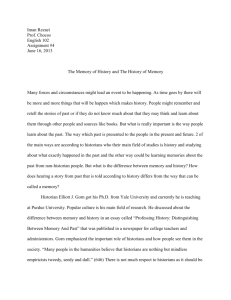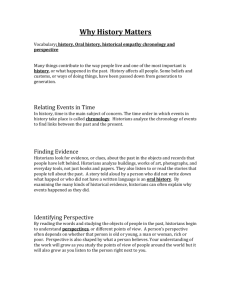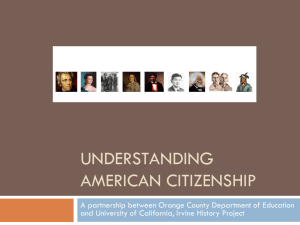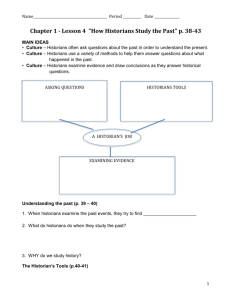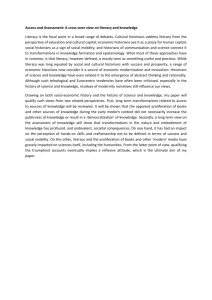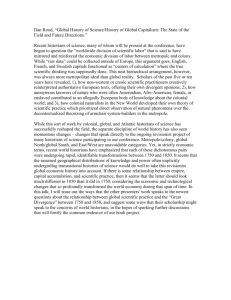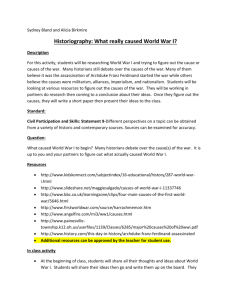international workshop - Società Italiana di Storia Internazionale
advertisement
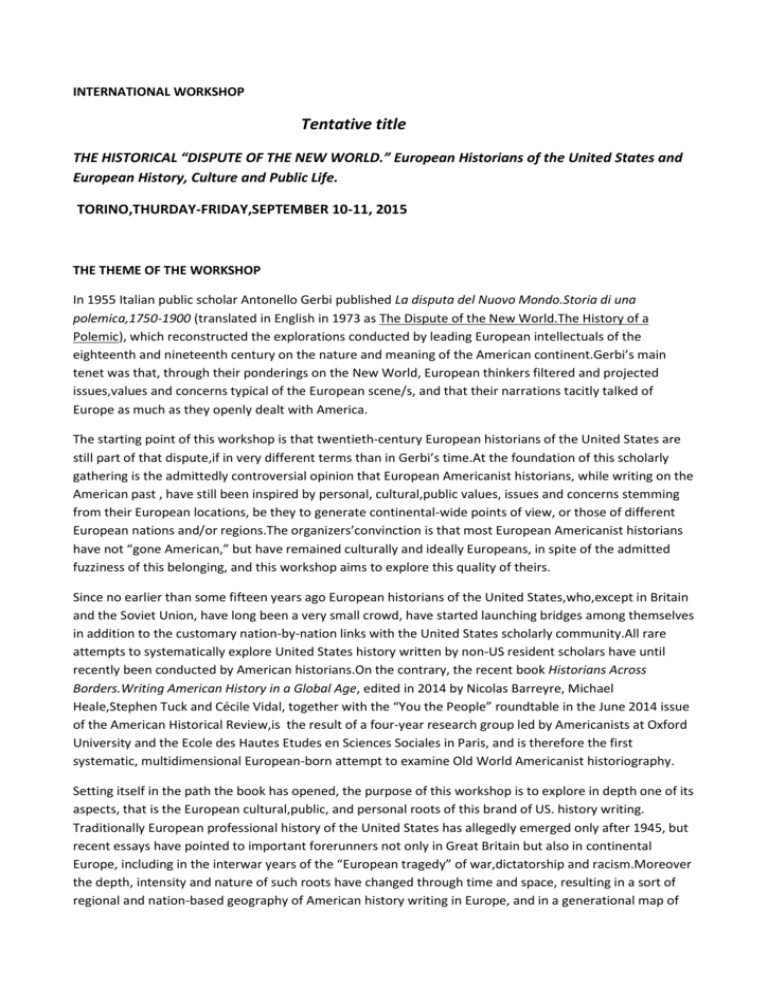
INTERNATIONAL WORKSHOP Tentative title THE HISTORICAL “DISPUTE OF THE NEW WORLD.” European Historians of the United States and European History, Culture and Public Life. TORINO,THURDAY-FRIDAY,SEPTEMBER 10-11, 2015 THE THEME OF THE WORKSHOP In 1955 Italian public scholar Antonello Gerbi published La disputa del Nuovo Mondo.Storia di una polemica,1750-1900 (translated in English in 1973 as The Dispute of the New World.The History of a Polemic), which reconstructed the explorations conducted by leading European intellectuals of the eighteenth and nineteenth century on the nature and meaning of the American continent.Gerbi’s main tenet was that, through their ponderings on the New World, European thinkers filtered and projected issues,values and concerns typical of the European scene/s, and that their narrations tacitly talked of Europe as much as they openly dealt with America. The starting point of this workshop is that twentieth-century European historians of the United States are still part of that dispute,if in very different terms than in Gerbi’s time.At the foundation of this scholarly gathering is the admittedly controversial opinion that European Americanist historians, while writing on the American past , have still been inspired by personal, cultural,public values, issues and concerns stemming from their European locations, be they to generate continental-wide points of view, or those of different European nations and/or regions.The organizers’convinction is that most European Americanist historians have not “gone American,” but have remained culturally and ideally Europeans, in spite of the admitted fuzziness of this belonging, and this workshop aims to explore this quality of theirs. Since no earlier than some fifteen years ago European historians of the United States,who,except in Britain and the Soviet Union, have long been a very small crowd, have started launching bridges among themselves in addition to the customary nation-by-nation links with the United States scholarly community.All rare attempts to systematically explore United States history written by non-US resident scholars have until recently been conducted by American historians.On the contrary, the recent book Historians Across Borders.Writing American History in a Global Age, edited in 2014 by Nicolas Barreyre, Michael Heale,Stephen Tuck and Cécile Vidal, together with the “You the People” roundtable in the June 2014 issue of the American Historical Review,is the result of a four-year research group led by Americanists at Oxford University and the Ecole des Hautes Etudes en Sciences Sociales in Paris, and is therefore the first systematic, multidimensional European-born attempt to examine Old World Americanist historiography. Setting itself in the path the book has opened, the purpose of this workshop is to explore in depth one of its aspects, that is the European cultural,public, and personal roots of this brand of US. history writing. Traditionally European professional history of the United States has allegedly emerged only after 1945, but recent essays have pointed to important forerunners not only in Great Britain but also in continental Europe, including in the interwar years of the “European tragedy” of war,dictatorship and racism.Moreover the depth, intensity and nature of such roots have changed through time and space, resulting in a sort of regional and nation-based geography of American history writing in Europe, and in a generational map of Old World US. historians, with the recent post-1970s cohort sharing in a more supranational frame of mind where national and continental roots are less remarkable. THE WORKSHOP’S FORMAT As of today the state of the study of Old World US. history writing has not developed cohesive, continentwide interpretations of the American past. Whatever the reason, including the difficulty of defining allEuropean cultural points of view and identities, most research on the mentioned subject has been conducted at the national level.It is a limitation this four-session, two-day workshop is bound to accept, to then move in two directions: on the one hand try and root national/regional US. history schools in each country’s public, cultural and history-writing traditions, on the other draw from the different case studies larger interpretative similarities and cleavages to be referred if not to the whole of Europe at least to large sections of it. Speakers will then be asked to focus their 30-minute presentations on aspects of United States history writing in their countries in light of how it would relate to their national scenes and their history-writing traditions.The workshop has a seminar format and plenty of time is left for discussion by speakers,participants and the public. A final roundtable will deal with European continent-wide interpretations of the United States past, and will draw tentative conclusions on supranational commonalities and differences in the Old World historical visions of North America. The workshop takes place in English. Notice:The writer is no native English speaker.My apologies for errors and mistakes.





